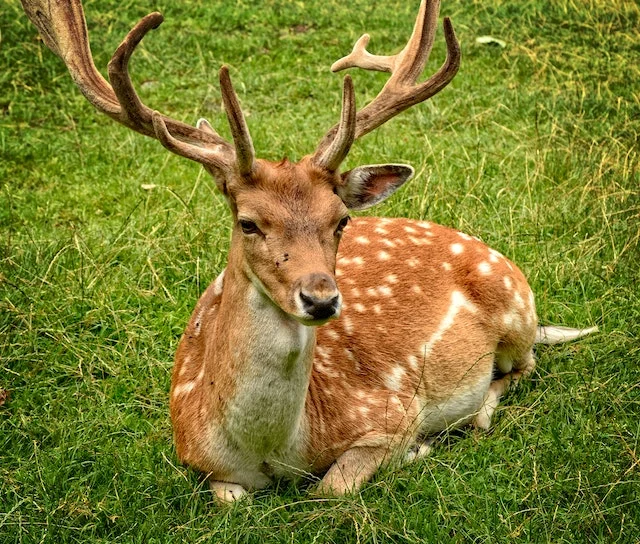Lifestyle
How Does Deer Feeders Affect Hunting?

The old-age activity of hunting has changed greatly over the years due to a wide range of variables, including technological developments, adjustments to animal conservation approaches, and modifications to hunting techniques. The concept of deer feeders is one such innovation that has drawn both support and criticism from the hunting community. Regarding their influence on hunting dynamics, wildlife behavior, and overall hunting experiences, these devices, intended to augment deer populations’ diet, have provoked arguments and disputes. The impact of deer feeders on hunting is examined in depth in this article.
Table of Contents
Understanding Deer Feeders
The notion of deer feeders must be understood before exploring their impacts. A deer feeder is a tool used to controllably feed deer food which can be obtained online from a reliable source, typically in the form of grains, pellets, or specially prepared feed. From straightforward gravity-fed models to more intricate electronic feeders with timers and sensors, these feeders can be made in various designs. Deer feeders are designed to supplement the natural food sources available to deer, particularly during times of scarcity like the winter or dry seasons.
Altering Deer Behavior and Patterns
The alteration of deer behavior and movement patterns by deer feeders is one of the most significant ways they affect hunting. Deer frequently form feeding patterns around feeders that provide a consistent food source. This predictability can be helpful for hunters because it provides information about when and where deer are most likely to appear in their hunting areas. This predictability, though, can also work against hunters who only use feeders because deer become more cautious and possibly nocturnal to avoid people during prime hunting seasons.
Ethical Considerations and Fair Chase
Deer feeders have an impact on the moral dimensions of hunting. Fair chase, fundamental to ethical hunting, is questioned when feeders are engaged. When chasing an escaped animal, a hunter is required to give it a reasonable chance to flee before continuing the pursuit following the concept of a fair pursuit. Some people believe that deer feeders become the animals used to the food, which makes them an easy target for predators and can go against the principles of fair chase.
Ecological Impact and Wildlife Dynamics
Deer feeders can have wider ecological effects in addition to hunting. These devices have the potential to cause overgrazing and environmental destruction by concentrating deer populations near feeding areas. This event can upset the ecosystem’s delicate balance by adversely affecting other wildlife species that depend on the same environment. Additionally, the increasing density of deer in feeding areas increases the risk of disease spreading among the herd, endangering cattle and wildlife.
The Role of Technology in Hunting
The use of deer feeders is a prime example of the incorporation of technology into hunting techniques. Electronic feeders that come with both timers and sensors are a great example of how contemporary technology can improve the capacity of hunters to attract games. On the other hand, this tech-driven approach raises problems regarding the traditional abilities required for hunting. Hunters must achieve a balance between relying on technology and improving their fundamental hunting skills, even though technology can unquestionably help in locating and enticing wildlife.
A Divergence of Opinions
The proliferation of deer feeders has resulted in a splintering of perspectives among members of the hunting community. Some hunters welcome the ease and consistency that feeders provide, viewing them as instruments that increase their chances of a successful hunt. On the other hand, advocate for a more conventional strategy and emphasize the necessity of becoming an expert in tracking, camouflage, and smell control. This difference is reflective of a larger discussion that is taking place within hunting circles regarding the changing nature of the sport and the maintenance of its core ideals.
Conclusion
Deer feeders have surely spurred conversations and debates in the hunting community regarding how they would affect the hunting experience, wildlife behavior, and ecological dynamics. While these gadgets have advantages like altered deer movement patterns and improved predictability, they pose moral questions and can have negative ecological effects. The conflict between contemporary technology and conventional hunting techniques further complicates the situation.
Also, Read – Top 8 Deer Hunting Tips For Beginners

-

 Business3 years ago
Business3 years agoHow to Do Long-Distance Moves with Children
-

 Travel2 years ago
Travel2 years agoQuick Guide: Moving To Santa Rosa?
-

 Real Estate3 years ago
Real Estate3 years agoWhy Dubai Festival City is a Great Neighbourhood for Young Learners
-

 Business3 years ago
Business3 years agoIs Guest Posting a Good Inbound Marketing Strategy?
-

 Business1 year ago
Business1 year agoThe Ultimate Guide To Thriving In Your Printing Franchise
-

 Business1 year ago
Business1 year agoExploring The Benefits And Challenges Of Restaurant Franchising
-

 Tech3 years ago
Tech3 years agoCyber Table That Will Change Your Life
-

 Lifestyle1 year ago
Lifestyle1 year agoDallas’ Hidden Gems: 6 Must-Try Restaurants Off The Beaten Path!











Recent Comments